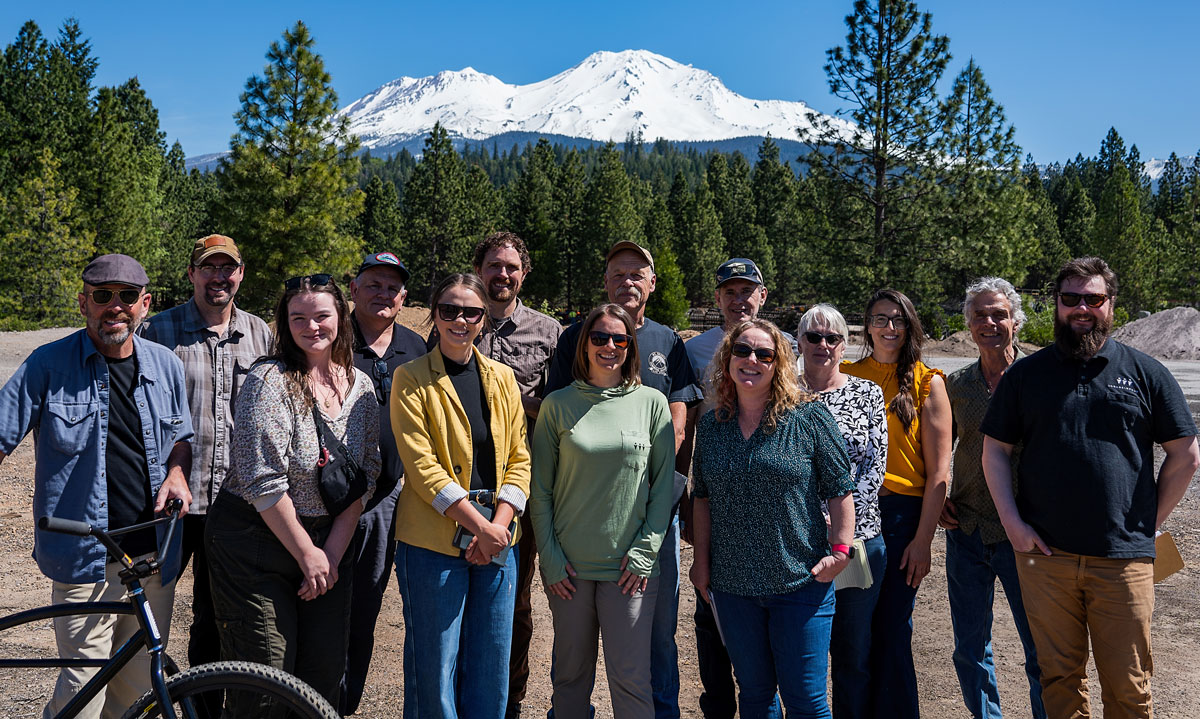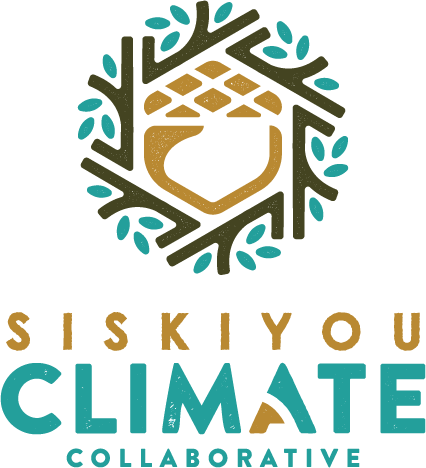RCC Year 1: Annual Report: Siskiyou Climate Collaborative

Overview
Award Amount: $1,500,000
Region: Siskiyou County
Communities of Focus: Happy Camp/Klamath River, Dunsmuir, McCloud, Yreka, Weed, Mt. Shasta, Etna, Fort Jones, Dorris/Tulelake, Grenada/Montague/Shasta Valley
Partners:
- Siskiyou Outdoor Recreation Alliance (SORA)
- Siskiyou Economic Development Council (SEDC)
- Shasta Valley Resource Conservation District (SVRCD)
- UC Cooperative Extension, Siskiyou (UCANR/UCCE)
- Nathan Johnston, Facilitator
- Siskiyou County SMART Workforce Development (SMART)
- Karuk Tribe Department of Natural Resources
The Siskiyou Climate Collaborative is working to develop a county wide Climate Resiliency Plan, while initiating and supporting funding applications and building a technical assistance network to see Siskiyou County’s rural cities and unincorporated communities accelerate climate pilot projects, apply for funding, and guide a more resilient future for Siskiyou County.

About the Collaborative
The Siskiyou Climate Collaborative (SCC) brings much needed social infrastructure for coalition and leadership-building in a rural region of California that has historically received little state investment. SCC leverages local knowledge and diverse partnerships to develop, prioritize, and implement sustainable climate adaptation and capacity-building strategies that support climate resiliency plans and projects throughout Siskiyou County. These projects focus on supporting rural, tribal, and under-resourced communities in the region who are facing increasingly devastating impacts of wildfires, drought, and other extreme climate events. Utilizing an equity-centered community process, SCC plans to produce an actionable Climate Resiliency Plan that will bring crucial funds to the region’s communities of focus. Additional priorities for the Collaborative include relationship-building, advocacy, community investment and funding, stakeholder engagement, and capacity-building to support, and fund, initiatives that uplift rural voices and center resiliency.
Highlights in Year 1
In its first year of Regional Climate Collaboratives (RCC) funding, SCC had many significant milestones for the region and opportunities for partnership and collaboration. In August 2023, SCC hosted a stakeholder kickoff for the collaborative, inviting leaders, businesses, and the community to share experiences, concerns, and early wins in climate and resiliency work in the County. Conversations focused on fuels reduction, anti-displacement strategies, and energy projects to reduce wildfire impacts in Siskiyou’s small cities and unincorporated communities; learnings from this inaugural meeting will help shape the direction of the collaborative and its regional funding priorities for the next few years. Ongoing internal and community meetings provide invaluable spaces to continue to solidify priorities, strengthen collaboration across the partnership, and identify technical assistance opportunities for the region. Additionally, the Collaborative’s work to develop the Siskiyou County Climate Resiliency plan is an integral step to uplift regenerative industries in Siskiyou County and showcase how agriculture, outdoor recreation, and wood utilization can help California reach carbon sequestration goals, and how rural communities are a vital contributor to the climate narrative.
The RCC program presented SCC with a catalyzing opportunity to tap into a variety of initiatives and leverage their collective capacity to secure a diversity of funding streams centered on rural resiliency. For example, in March 2023, SCC celebrated the groundbreaking of one of California’s Jobs First Regional Initiative awards, which awarded the Siskiyou Economic Development Council (SEDC) with $2.14 million to reintroduce the local, shuttered Carnegie landmark as a central hub for industry and community resiliency in Siskiyou County. In 2023, SEDC was also awarded a California Department of Food & Agriculture Healthy Soils grant of $5 million, the single largest state or federal award received by the SEDC to date. As a climate strategy to support regenerative soils, this project will direct $4 million to healthy soils projects in Siskiyou. In July 2024, SCC celebrated 20 years of work with US EPA Brownfields and the cleanup of the historic Roseburg Mill site and received one of 50 Technical Assistance for Design awards nationwide. This award will provide critical funds to help SCC to prepare an eligible project and apply for the U.S. EPA Community Change Grant.
These funding and partnership opportunities are strengthened by the collective power of SCC which continues to uplift programs operating at the intersection of economic development, climate resiliency, and rural priorities. This invaluable network’s ability to harness its local assets to attract state and federal investment will have multiplying effects for decades to come.
Key Milestones:
- Held eight internal partner meetings to share updates, approve community engagement resources, establish subcommittees, and conduct a collaborative-wide Strengths, Weaknesses, Opportunities & Threat (SWOT) analysis.
- Held eight external meetings with more than 200 local leaders and partners, including the California Air Resources Board, the Carnegie Resiliency Hub, the City of Dunsmuir, and the Yreka Downtown Changemakers for Climate.
- Applied for 38 local, state, and federal grants, including the Community Economic Mobilization Initiative, Department of Energy Solutions for Viable Energy Infrastructure, California Department of Food & Agriculture Healthy Soils Block Grant, National Institute of Food & Agriculture Beginning Farmers and Ranchers Grant, and the Ford Family Foundation Large Good Neighbors Grant.
- Received more than $13 million in grant awards focused on capacity building, project readiness, project implementation, and resiliency hubs.
- Provided technical assistance to the City of Dunsmuir on the submission of a competitive application to the Office of Planning & Research’s Climate Adaptation Grant.
What’s Next
In the coming year, SCC will continue to host collaborative partner meetings, expand external communications, track climate priorities for the region, and prepare projects for potential funding. During this period, SCC will also continue to develop its Climate Resiliency Plan, draft a strategy-to-plan adoption pathway, launch a technical assistance network, host reoccurring CBO Climate Summits, and identify pilot successes throughout the region. Part of this work will also include a focus on next steps for the “Landing,” a 127-acre former Roseburg Mill site, in the city of Mt. Shasta. After 40 years of cleanup, the site is now clean and ready for its future use!